Citric Acid Cleaning Hack: Are you tired of battling stubborn stains and grime with harsh chemicals? I know I was! It felt like I was constantly searching for a cleaning solution that was both effective and safe for my family and the environment. Well, get ready to ditch those toxic cleaners because I’m about to share a game-changing DIY trick that will revolutionize your cleaning routine!
Using citric acid for cleaning isn’t exactly a new idea. In fact, our grandmothers probably knew a thing or two about the power of lemons and other citrus fruits! Historically, citrus fruits have been used for their natural cleaning and disinfecting properties for centuries, long before the advent of commercially produced cleaners. Think about it – lemon juice has been a go-to stain remover for generations.
But why should you embrace this citric acid cleaning hack now? Because it’s a simple, affordable, and eco-friendly way to tackle everything from hard water stains in your bathroom to stubborn grease in your kitchen. Plus, it’s a fantastic alternative for those of us who are sensitive to the strong smells and harsh chemicals found in many commercial cleaning products. I’m going to show you how to harness the power of citric acid to create your own effective and all-natural cleaning solutions. Get ready to say goodbye to harsh chemicals and hello to a sparkling clean home, the natural way!
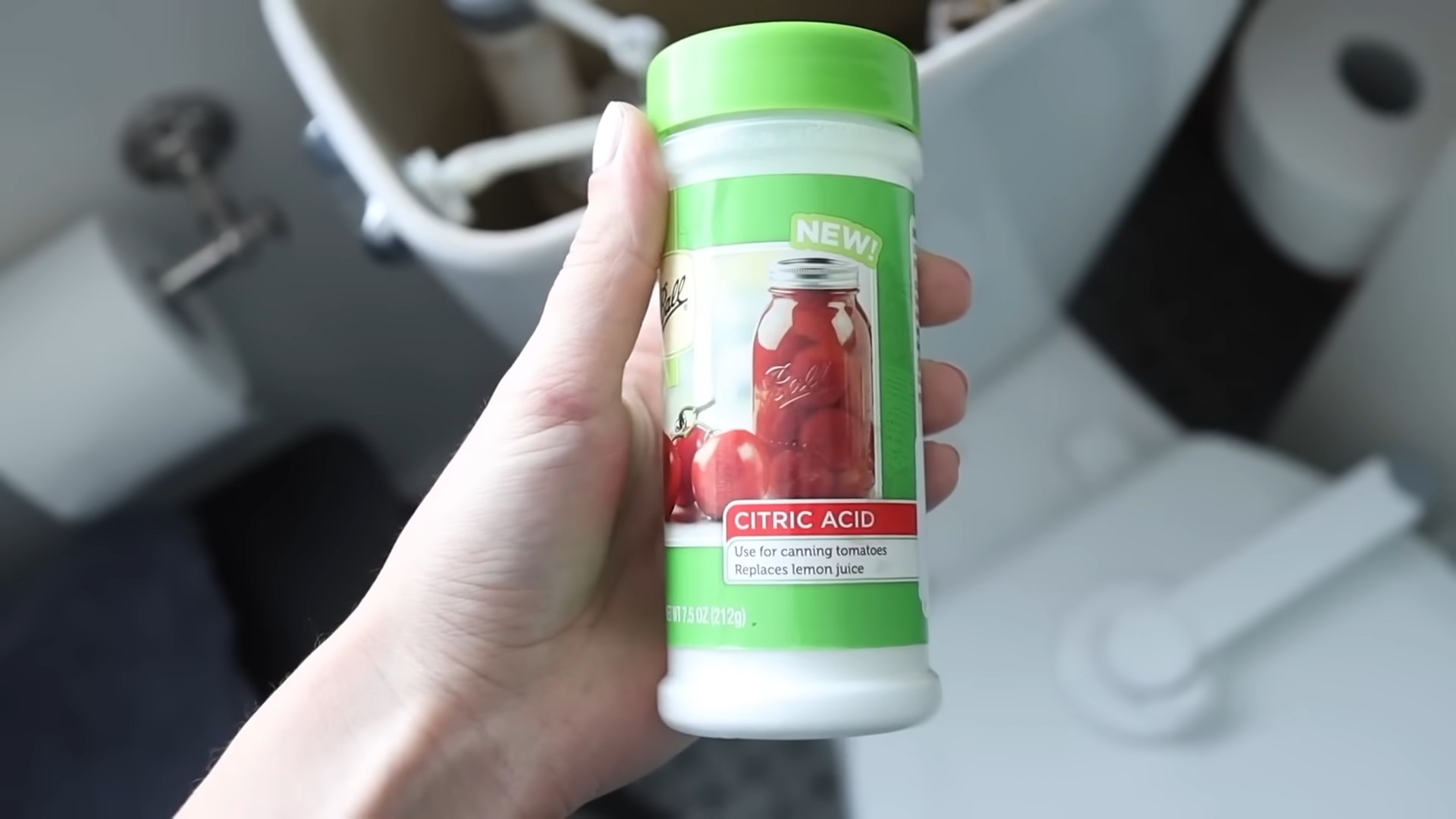
Citric Acid Cleaning Powerhouse: My DIY Guide to Sparkling Clean!
Hey everyone! I’m so excited to share one of my favorite cleaning hacks with you – using citric acid! Seriously, this stuff is a game-changer. It’s natural, effective, and way cheaper than most commercial cleaners. I’ve been using it for ages, and my house has never been cleaner. So, ditch those harsh chemicals and let’s get started on making your home sparkle with the power of citric acid!
What is Citric Acid and Why Should You Use It?
Citric acid is a naturally occurring acid found in citrus fruits like lemons and limes. It’s a fantastic cleaning agent because it’s a mild acid that can dissolve hard water stains, soap scum, rust, and even some types of mold. Plus, it’s biodegradable and non-toxic, making it a much safer alternative to many chemical cleaners. I love that I can clean without worrying about harmful fumes or residues!
The Ultimate Citric Acid Cleaning Guide:
Here’s a breakdown of how I use citric acid to tackle different cleaning tasks around my home:
* Descaling Kettles and Coffee Makers: This is probably my most frequent use. Hard water buildup is the bane of my existence, but citric acid makes it disappear like magic.
* Cleaning Showerheads: Say goodbye to those clogged showerheads! A citric acid soak will have them spraying like new.
* Removing Hard Water Stains from Faucets and Sinks: Those stubborn white spots around your faucets? Citric acid is your new best friend.
* Cleaning Toilets: A natural and effective way to keep your toilet bowl sparkling clean.
* Laundry Booster: Add it to your laundry to brighten whites and remove odors.
* Dishwasher Cleaner: Keeps your dishwasher running smoothly and smelling fresh.
* Rust Removal: For small rust spots on surfaces, citric acid can work wonders.
* General Purpose Cleaner: Diluted citric acid can be used as an all-purpose cleaner for various surfaces.
Getting Started: What You’ll Need
Before we dive into the specific cleaning projects, let’s gather our supplies. This is a pretty simple list, which is another reason why I love this hack!
* Citric Acid Powder: You can find this online or in the baking section of some grocery stores. I usually buy a big bag because I use it so much.
* Water: Tap water is fine!
* Spray Bottle: For general cleaning solutions.
* Bowl or Container: For soaking items.
* Sponge or Cloth: For wiping surfaces.
* Gloves (Optional): While citric acid is generally safe, it can irritate sensitive skin. I usually wear gloves just to be on the safe side.
* Measuring Spoons: For accurate measurements.
* Old Toothbrush: For scrubbing tight spots.
Descaling Kettles and Coffee Makers: The Magic of Citric Acid
This is where I first discovered the power of citric acid. My kettle was always covered in limescale, and it was driving me crazy! Here’s how I descale my kettle and coffee maker:
1. Prepare the Solution: Mix 1-2 tablespoons of citric acid powder with about 1 liter (4 cups) of water. The amount of citric acid depends on how much scale there is. For a heavily scaled kettle, I use 2 tablespoons.
2. Fill the Kettle/Coffee Maker: Pour the citric acid solution into your kettle or the water reservoir of your coffee maker.
3. Boil/Run the Cycle:
* Kettle: Boil the solution in the kettle. Once it boils, let it sit for about 30 minutes to an hour. For really stubborn scale, you can let it sit overnight.
* Coffee Maker: Run a full brewing cycle with the citric acid solution.
4. Rinse Thoroughly: After soaking, discard the solution and rinse the kettle or coffee maker thoroughly with clean water. I usually rinse it 2-3 times to make sure all the citric acid is gone.
5. Boil/Run Again with Clean Water: Finally, boil water in the kettle or run another brewing cycle with clean water to remove any lingering taste or residue.
Pro Tip: If you still see some limescale after the first treatment, repeat the process. Sometimes it takes a couple of tries for really tough buildup.
Cleaning Showerheads: Restoring the Spray
A clogged showerhead is so frustrating! Citric acid can dissolve the mineral deposits that cause the clogging. Here’s my method:
1. Remove the Showerhead (If Possible): If you can easily remove your showerhead, that’s ideal. This allows for a more thorough soak. If not, don’t worry, I’ll show you how to clean it in place.
2. Prepare the Soaking Solution: Mix 2-3 tablespoons of citric acid powder with about 1 liter (4 cups) of warm water in a bowl or container.
3. Soak the Showerhead:
* Removed Showerhead: Submerge the showerhead completely in the citric acid solution and let it soak for at least 30 minutes, or even overnight for heavily clogged showerheads.
* Showerhead in Place: If you can’t remove the showerhead, fill a plastic bag with the citric acid solution and secure it around the showerhead with a rubber band or zip tie, ensuring the showerhead is fully submerged in the solution. Let it soak for at least an hour, or overnight.
4. Scrub and Rinse: After soaking, remove the showerhead (or the bag) and scrub away any remaining mineral deposits with an old toothbrush. Rinse thoroughly with clean water.
5. Reinstall (If Removed): Reattach the showerhead to the shower arm.
6. Run the Shower: Run the shower for a few minutes to flush out any remaining debris.
Pro Tip: For showerheads with rubber nozzles, you can use a needle or pin to poke through any stubborn blockages after soaking.
Removing Hard Water Stains from Faucets and Sinks: Sparkling Fixtures
Those white, chalky stains around faucets and sinks are a common problem, especially if you have hard water. Citric acid to the rescue!
1. Prepare the Paste: Mix citric acid powder with a small amount of water to form a thick paste. I usually start with a tablespoon of citric acid and add water drop by drop until I get the right consistency.
2. Apply the Paste: Apply the citric acid paste directly to the hard water stains on your faucets and sinks.
3. Let it Sit: Allow the paste to sit for about 15-30 minutes. For really stubborn stains, you can let it sit longer, but keep an eye on it to make sure it doesn’t dry out completely.
4. Scrub and Rinse: Scrub the area with a sponge or cloth. For tight spots around the base of the faucet, use an old toothbrush. Rinse thoroughly with clean water.
5. Dry and Polish: Dry the area with a clean cloth. For extra shine, you can polish the faucets with a microfiber cloth.
Pro Tip: For vertical surfaces, you can use a cotton ball or paper towel soaked in citric acid solution and tape it to the stain to keep it in place.
Cleaning Toilets: A Natural Bowl Cleaner
I love using citric acid to clean my toilets because it’s a natural and effective way to get rid of stains and odors.
1. Pour Citric Acid into the Bowl: Pour about 1/4 to 1/2 cup of citric acid powder directly into the toilet bowl.
2. Let it Sit: Let the citric acid sit in the bowl for at least 30 minutes, or even overnight for heavily stained toilets.
3. Scrub and Flush: Scrub the bowl with a toilet brush, paying attention to any stains or buildup. Flush the toilet.
Pro Tip: For extra cleaning power, you can add a cup of baking soda to the toilet bowl after the citric acid has sat for a while. The combination of citric acid and baking soda creates a fizzing action that helps to loosen stains.
Laundry Booster: Brightening Whites and Removing Odors
Citric acid can also be used as a laundry booster to brighten whites and remove odors.
1. Add to the Washing Machine: Add 1-2 tablespoons of citric acid powder to your washing machine along with your regular detergent. I add it directly to the drum before adding the clothes.
2. Wash as Usual: Wash your clothes as usual.
Pro Tip: Citric acid is particularly effective at removing mildew odors from towels and workout clothes.
Dishwasher Cleaner: Keeping Your Dishwasher Fresh
A clean dishwasher means cleaner dishes! Citric acid can help keep your dishwasher running smoothly and smelling fresh.
1. Add to
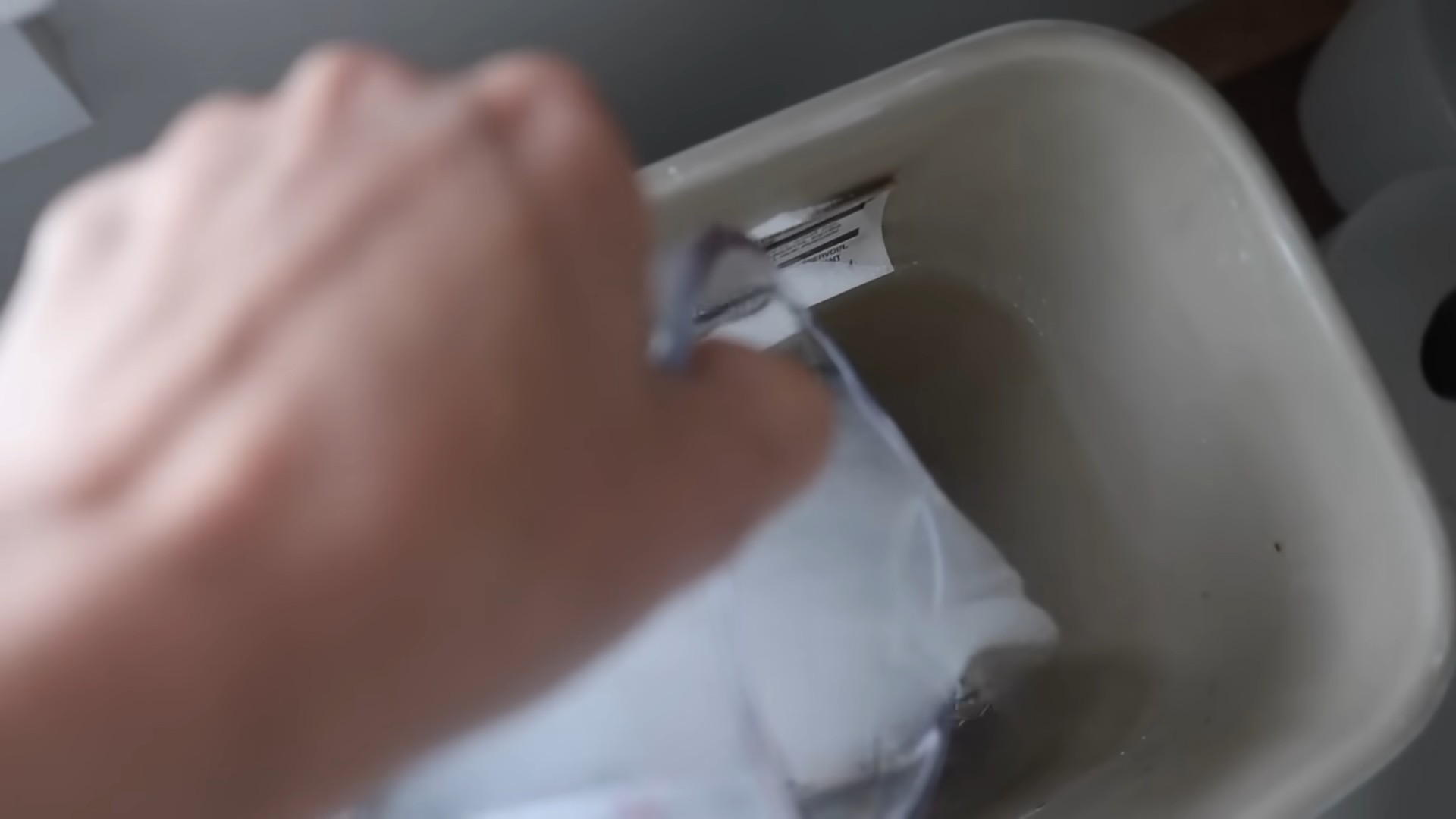
Conclusion
So, there you have it! The Citric Acid Cleaning Hack – a simple, effective, and surprisingly versatile solution to many of your household cleaning woes. We’ve walked you through the basic method, highlighting its power to tackle everything from stubborn hard water stains to grimy coffee makers. But why is this DIY trick a must-try?
Firstly, it’s about effectiveness. Citric acid is a natural powerhouse when it comes to dissolving mineral deposits and cutting through grease. Unlike harsh chemical cleaners, it gets the job done without leaving behind noxious fumes or harmful residues. This makes it a safer option for your family and pets, and a more environmentally friendly choice overall.
Secondly, it’s about cost-effectiveness. A bag of citric acid is incredibly affordable and lasts a long time. Compare that to constantly buying specialized cleaning products for every nook and cranny of your home, and the savings quickly add up. You’re essentially creating a multi-purpose cleaner for a fraction of the price.
Thirdly, it’s about convenience. No more cluttered cabinets filled with dozens of different bottles. With citric acid, you have one simple ingredient that can be adapted to a wide range of cleaning tasks. It simplifies your cleaning routine and frees up valuable storage space.
But the beauty of this hack lies in its adaptability. Feel free to experiment with different concentrations to find what works best for your specific needs. For particularly stubborn stains, try making a paste of citric acid and water and letting it sit for a longer period before scrubbing. You can also add a few drops of your favorite essential oil, like lemon or lavender, to give your homemade cleaner a pleasant scent. For descaling kettles or coffee makers, consider adding a tablespoon of baking soda to the citric acid solution for an extra boost of cleaning power. Just be mindful of potential fizzing!
Another variation to consider is using citric acid in your laundry. A tablespoon or two added to your washing machine can help brighten whites, remove stains, and soften fabrics. It’s a natural alternative to harsh chemical bleaches and fabric softeners.
We’ve found that using warm water enhances the cleaning power of citric acid, especially when tackling grease or soap scum. However, always test the solution on an inconspicuous area first, particularly when cleaning delicate surfaces like marble or granite. While citric acid is generally safe, it’s always better to err on the side of caution.
Ultimately, the Citric Acid Cleaning Hack is about empowering you to take control of your cleaning routine with a simple, natural, and effective solution. It’s about saving money, reducing waste, and creating a healthier home environment.
So, what are you waiting for? Give it a try! We’re confident that you’ll be amazed by the results. And more importantly, we want to hear about your experience. Share your tips, tricks, and before-and-after photos in the comments below. Let’s build a community of savvy cleaners who are embracing the power of citric acid! We are eager to see how you incorporate this versatile cleaning agent into your home. Your insights could help others discover new and innovative ways to use this fantastic cleaning hack. Let’s make cleaning easier, greener, and more affordable, together!
Frequently Asked Questions (FAQ)
What exactly is citric acid, and where can I buy it?
Citric acid is a naturally occurring organic acid found in citrus fruits like lemons and limes. It’s a white, crystalline powder that’s commonly used as a food preservative, flavoring agent, and, of course, a cleaning agent. You can easily find citric acid in the baking aisle of most grocery stores, often near the canning supplies. It’s also readily available online from retailers like Amazon or specialty cleaning supply stores. Look for food-grade citric acid for the best quality and safety.
Is citric acid safe to use around children and pets?
While citric acid is generally considered safe, it’s still important to exercise caution when using it around children and pets. Keep the powder and solutions out of their reach to prevent accidental ingestion. Although citric acid is non-toxic in small amounts, consuming large quantities can cause stomach upset. When cleaning, ensure the area is well-ventilated, and rinse surfaces thoroughly after cleaning to remove any residue. As with any cleaning product, it’s always best to supervise children and pets during the cleaning process.
Can I use citric acid on all surfaces? Are there any surfaces I should avoid?
Citric acid is a versatile cleaner, but it’s not suitable for all surfaces. Avoid using it on natural stone surfaces like marble, granite, and limestone, as it can etch or damage them. It’s also best to avoid using it on aluminum, as it can cause discoloration. Always test the solution on an inconspicuous area first to ensure it doesn’t damage the surface. Citric acid is generally safe for use on stainless steel, plastic, glass, ceramic, and porcelain.
How do I make a basic citric acid cleaning solution?
Making a basic citric acid cleaning solution is simple. Start with a ratio of 1-2 tablespoons of citric acid powder per cup of warm water. Mix well until the powder is completely dissolved. You can adjust the concentration depending on the severity of the cleaning task. For light cleaning, a weaker solution may suffice, while for stubborn stains, a stronger solution may be necessary. Always start with a weaker solution and gradually increase the concentration as needed.
How long does a citric acid cleaning solution last?
A citric acid cleaning solution can last for several weeks when stored properly. Keep it in a sealed container in a cool, dark place to prevent it from degrading. You may notice a slight change in color or odor over time, but this doesn’t necessarily mean the solution is no longer effective. If you’re unsure, it’s always best to make a fresh batch.
Can I use citric acid to clean my dishwasher or washing machine?
Yes, citric acid is an excellent natural cleaner for dishwashers and washing machines. To clean your dishwasher, simply add 1/2 cup of citric acid powder to the detergent dispenser and run a normal cycle with no dishes. To clean your washing machine, add 1/2 cup of citric acid powder to the drum and run a hot water cycle. This will help remove mineral buildup, soap scum, and odors, leaving your appliances fresh and clean.
What are some other uses for citric acid besides cleaning?
Besides cleaning, citric acid has several other uses. It can be used as a food preservative, adding a tangy flavor to jams, jellies, and other preserves. It’s also used in cosmetics and personal care products as an antioxidant and pH adjuster. In the garden, citric acid can be used to lower the pH of soil for acid-loving plants like azaleas and rhododendrons. It’s a truly versatile ingredient with a wide range of applications.
Can I mix citric acid with other cleaning agents like bleach or vinegar?
No, it’s generally not recommended to mix citric acid with other cleaning agents, especially bleach. Mixing citric acid with bleach can create harmful chlorine gas, which can be dangerous to inhale. Similarly, mixing citric acid with vinegar can create a chemical reaction that reduces the effectiveness of both cleaners. It’s always best to use citric acid on its own or with water. If you’re unsure about mixing citric acid with another cleaning agent, consult a professional cleaner or refer to the product labels for safety information.
My citric acid solution is not working as well as I expected. What could be the problem?
If your citric acid solution isn’t working as well as you expected, there could be several reasons. First, make sure you’re using a strong enough concentration. For stubborn stains, you may need to increase the amount of citric acid in the solution. Second, ensure the solution is warm, as warm water enhances the cleaning power of citric acid. Third, allow the solution to sit on the surface for a longer period before scrubbing. This will give the citric acid time to dissolve the mineral deposits or grease. Finally, make sure you’re using food-grade citric acid, as other types may not be as effective for cleaning.
How does the Citric Acid Cleaning Hack compare to using vinegar for cleaning?
Both citric acid and vinegar are popular natural cleaning agents, but they have different strengths and weaknesses. Citric acid is generally more effective at removing hard water stains and mineral deposits, while vinegar is better at cutting through grease and odors. Citric acid is also less likely to leave behind a lingering odor compared to vinegar. However, vinegar is often more readily available and less expensive than citric acid. Ultimately, the best choice depends on the specific cleaning task and your personal preferences. Many people find that using both citric acid and vinegar in their cleaning routine provides the best results.

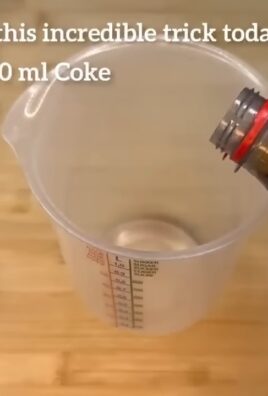
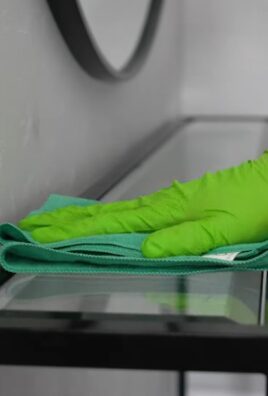
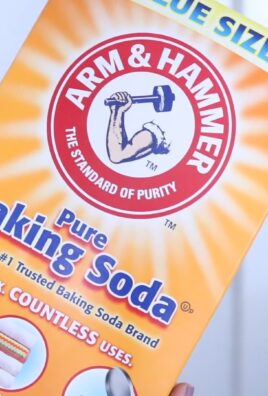
Leave a Comment